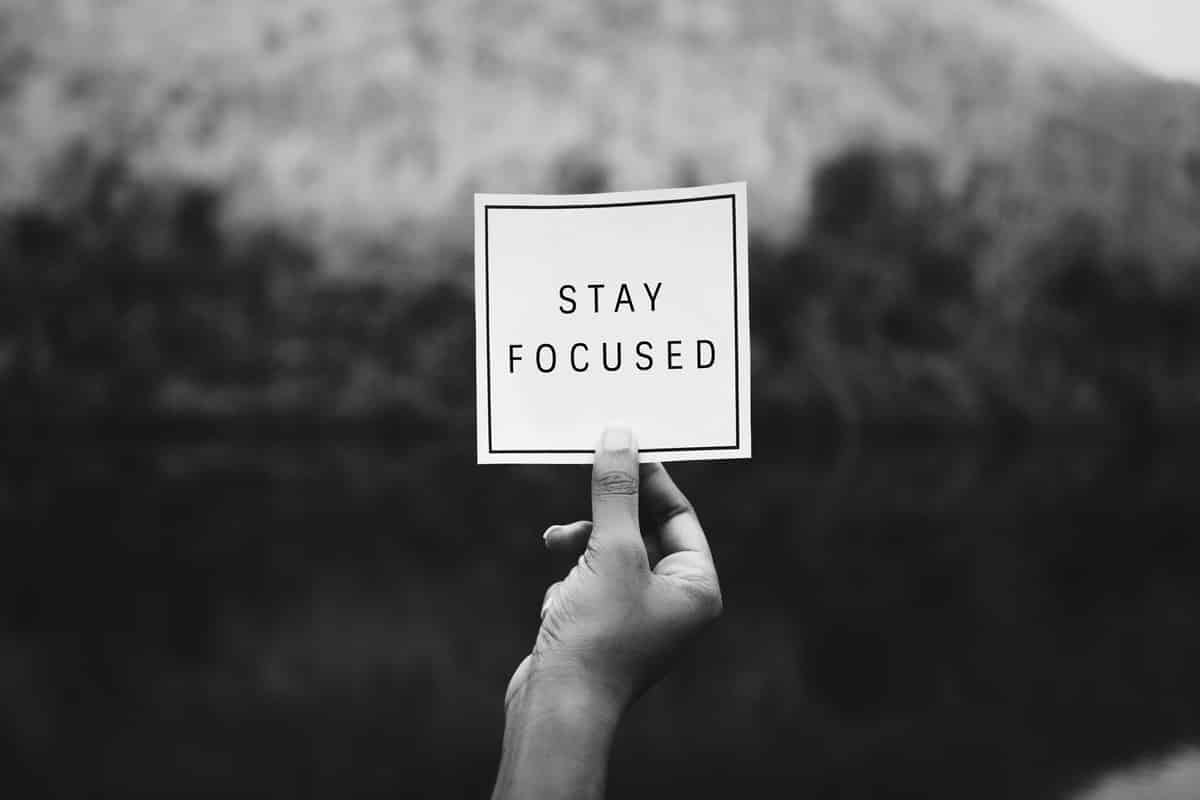As if it wasn’t hard enough to focus in the office with coworkers joking in the background, the sounds of ping-pong, and the smells of mystery microwave lunches, this past year brought a whole new set of challenges. People are working from home in small spaces, parents are overseeing kids doing online school, and pets are crying for our attention.
When it comes to working from home, there are two camps – those who have discovered during the pandemic that they’re more productive, and those who can’t wait to get back to the office so they can focus. I’m in the first group. I used to go to the office about four times a week and work from home for meeting-free Fridays. I’m adamant that when it’s time to go back I’m going to flip my schedule to stay home four days a week and go in only once.
Granted, I have enough space in my house to have a dedicated office. There’s no door so it’s not completely quiet, but I’m set up with a desk, monitor, and happy light, and I’m surrounded by plants. My son is away for his first year of college and my daughter is a high school sophomore who’s pretty independent when it comes to online school. My husband teaches preschool (100% outdoors this year) so he and I aren’t competing for space or bandwidth.
While working remote, whether you’re loving it or can’t wait for it to end, here are things I swear by that will help you stay focused:
Use your Golden Hour
Bestselling author and speaker Richard Leider believes each of us has a golden hour – the time when your mind is clear, your energy is high, and you’re at your best. Mine is in the morning, and I realized I was wasting it by using that time to catch up on email. After hearing Leider speak, I began reserving my early mornings for creative pursuits like writing and blogging. The email could wait. Once you figure out when your golden hour is, you can be intentional about putting that time to good use.
Master the To-Do List
Busy people have too much going on to keep it all in their heads. I used to remember everything. Now, I recognize that I will remember very little from my ever-growing to-do list, so everything important gets written down. The first benefit is that writing a list is that it clears your head. For those who love the sense of satisfaction that comes from checking off completed tasks, you get that too. At the beginning of each day I write a short list, not more than three to five things that I absolutely must get done. I do this in my notebook or on a post-it note and when I’m trying to decide what to do next, it helps me refocus.
Know When to Quit
At work, we take our cues from the people around us when they get up for coffee, break for lunch, or head out the door in the evening. At home, we have to build in our own mechanisms to know when to take a break or quit for the day. You might set an alarm for lunch and breaks, or leave your desk to walk around the block as a symbolic “commute.” I personally know I’m finished when I start scrolling up and down through my emails but don’t have the energy to act or respond. When I catch myself doing that, I get up for a glass of water, have a snack, or take a walk outside so I can come back refreshed.
Everyone is different, so experiment to see what works for you. Remember that change is slow, so start small. If you can turn even one of the ideas above into a routine it won’t be long before you see the results.
Interested in learning more remote people management skills? Check out our next workshop: Management Essentials for Developing People Leaders.














